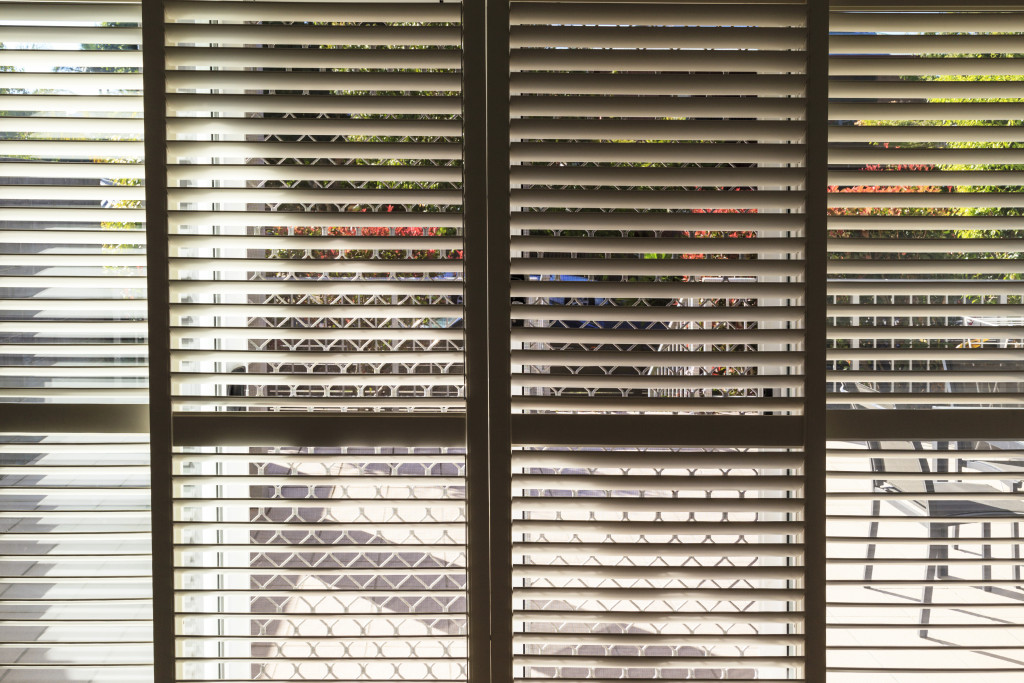Because of the pandemic, everyone’s staying at home as much as possible. Many employees still work from home even though many companies are starting to make people go back to the office. Most classes are online, so students also get to stay at home.
Most people don’t wear sunscreens at home. They think it’s not important since they’re not going out anyway. Also, sunscreens are associated with the great outdoors. Usually, people only wear sunscreen if they’re going outside for a long period, whether to go for a run or walk, swim, hike, and so on.
But even if you’re inside your home, you still need to wear sunscreen, especially during the summer.
Windows are Not Enough
Many think that since they’re indoors, they’re fully protected from the sun’s harmful UV rays. This is partially true since walls can do a good job in blocking UV rays. Unfortunately, windows can’t. UV radiation can pass through clouds as well.
According to the International Ultraviolet Association, most standard windows only block UV-B and UV-C rays. They can’t block UV-A rays completely. UV-A rays also pass through clouds.
UV-A rays can penetrate deeper into the skin and cause premature skin aging more than the other forms of UV. In extreme cases, they can cause skin cancer due to constant skin damage.
Thus, it’s important to apply sunscreen to all exposed areas of the skin. If you plan to work out in a room full of windows without a shirt on, you’ll need to slather your entire upper body with sunblock.

Beware of Blue Screens
During the pandemic, the average screen time of Americans is 1 hours. In retrospect, this number isn’t shocking. People spend most of their days at home. And they’re almost always in front of a screen, whether it’s their computer, phone, TV, or tablet. These devices’ screens have blue light. Prolonged exposure to blue light can be dangerous to one’s eyes.
Apart from vision, blue light can also affect your skin. One indirect effect is lack of sleep. Blue light suppresses the body’s melatonin, which is the hormone that makes you feel drowsy. Lack of sleep makes your skin age more quickly.
Blue light can also damage the skin directly. According to Unilever, blue light can penetrate deeper into the skin than UV rays. It can cause unwanted skin pigmentation, just like UV rays can.
Thus, sunscreen is a must inside the home. You need to choose a sunscreen that can block not only UV rays but also high-energy visible light, such as blue light.
Benefits of Wearing Sunscreen At Home
Windows don’t fully protect you from UV rays. And the blue light on your device screens also affects your skin. If these facts are still not convincing, below are some benefits of wearing sunscreen that may compel you to stick with a daily sunscreen routine:
- Helps maintain an even skin tone – UV radiation causes skin pigmentation. When your skin is exposed to sunlight, it generates more melanin and causes your skin to darken. Also, if you’ve gone through a permanent makeup and microblading treatment, using sunscreen will protect it from fading.
- Protects skin against sunburn – Applying sunscreen on your skin will protect you from sunburns since the product can block all forms of UV rays, including UV-B that is the primary cause of sunburn.
- Prevents premature skin aging – As mentioned earlier, UV rays can dig deep into the skin and change its DNA, which then leads to premature skin aging. Using sunscreen every day will help your skin stay healthy. You avoid wrinkles as well.
- Reduces risk of skin cancer – Approximately 9 percent of nonmelanoma skin cancers are potentially caused by UV radiation exposure. Also of note is that men have a higher risk of melanoma, the most serious skin cancer, than women. Using sunscreen regularly will greatly reduce your risk.
Next Steps
Given the importance of sunscreen even at home, you need to make sure that you always apply it to your skin. This is even more important if you often stay beside windows or in a room with a lot of sunlight coming in.
Use a sunscreen product with at least SPF 30. Apply it directly onto your skin for maximum protection. You’ll also have to reapply every few hours if you’re constantly exposed to sunlight, especially around 10 am to 4 pm when UV rays are the strongest.
Consider using an alarm to remind yourself that you need to put on sunscreen. Or you can just place your sunblock bottle within reach. This way, you’re more likely to use it often.

